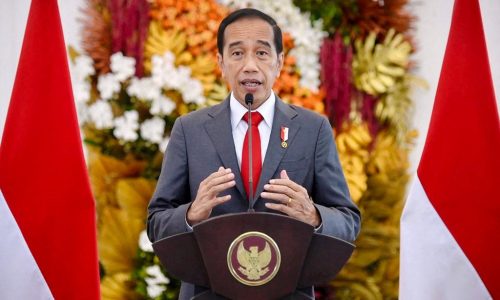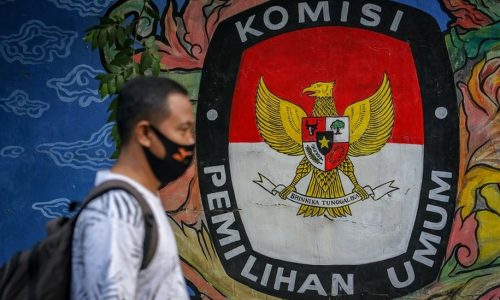The government of Indonesia plans to unbundle and list the state-owned power utility PT PLN in what experts and activists see as a liberalization of the country’s energy sector.
The Ministry of State Owned Enterprises officially launched PLN’s holding and subholding on September 21, 2022. As a result of this initiative, PLN will become a future-oriented, innovative and technology-based energy company.
PLN Chief Executive Officer, Darmawan Prasodjo, explained that by establishing PLN’s holding and subholding, the company would have four subholdings that will bring it into a star and agile in business development.
The four sub-holdings are PLN Energi Primer Indonesia, PLN Nusantara Power (Generation Company 1), PLN Indonesia Power (Generation Company 2) and PLN ICON Plus. The subholdings will play a key role in PLN’s operation in illuminating the archipelago as they manage state assets. Future collaboration between the four sub-holdings will focus primarily on optimizing the supply chain of PLN business.
“PLN is continuing to transform so that it can optimize its function as the heart of Indonesia, managing power business by changing the business processes, making it more agile, faster, and more flexible, so that electrification of the nations can proceed smoothly and that it will become a pioneer in the environmentally friendly power sector,” said Prasodjo.
According to Prasodjo, PLN’s power plant assets will be consolidated through holding and subholding. The company will simplify the business process for managing power plants and maximize the utility of purchases.
To consolidate the assets of the power plants, PLN intends to establish two subholdings of generation companies – namely PLN Indonesia Power and PLN Nusantara Power – that will become the essential generation companies in Southeast Asia.
State-owned enterprises minister Erick Thohir said the ministry was open to the possibility of PLN’s subholding company going public or launching an initial public offering.
“There is a potential for an IPO, mainly for PLN ICON Plus and Beyond KWH,” he told a press conference at PLN’s headquarters in Jakarta on September 21, 2022.
Liberalization
Political economist Salamudin Daeng said that the establishment of PLN’s holding and subholding was intended to unbundle and separate PLN into independent subholdings. PLN shares will be sold in the retail market for loans or for sale in the capital markets following the unbundling.
By unbundling PLN into smaller units, it will be easier to sell the shares. The government can identify the buyer if it sells PLN as a holding. If the buyer later becomes part of the oligarch, it will be understood that the privatization is intended to take possession of the assets before the 2024 general elections.
According to Marwan Batubara, Executive Director at Indonesia Resource Study (IRESS), the government’s claim to not privatize state-owned enterprises such as Pertamina and PLN was untrue. The companies are divided into smaller units called sub-holdings and subsidiaries, and then they are sold on the capital market through initial public offerings. “Furthermore, one of the profitable companies will be selected and traded,” he said.
According to Batubara, foreign investors will be interested in investing and acquiring shares in profitable Indonesian state-owned companies. In addition to foreign investors’ interests, government officials’ interests are also served by state-owned companies.
In Daeng’s view, one of the reasons for the privatization of PLN by the state-owned enterprise ministry was to improve PLN’s financial condition. The reason why the government needs to strengthen PLN’s financial positioin was due to the company’s enormous debt. Unbundling PLN’s assets would solve the debt problem. As a result of the unbundling, the company will be sent to the capital market to pay its debt.
Daeng said that Fitch Ratings, a Singapore-based rating agency, reported on August 12, 2021, that PLN has a stable rating of BBB. PLN’s medium-term bond program was also rated senior without collateral by the agency. A bond issued by the program is backed by dollar banknotes issued by the company’s subsidiary, Majapahit Holding BV, and is guaranteed by PLN in the “BBB.”
However, the debt rating of PLN is similar to that of Indonesia. The BBB stable rating is based on the expectation of possible “solid support” and conforms to the criteria of the government-related entity. Therefore, the PLN’s rating depends on government support.
Daeng also said that since most of PLN’s profits were determined by government subsidies and compensation, so PLN relies upon the government to meet the lack of income. Subsidies determine the loss. The calculation of compensation determines profit. To maintain a positive image, the government will state a profit.
In 2020, the state will provide IDR 5 trillion in equity and IDR 6.5 trillion in equity in 2019, guaranteeing a fifth of PLN’s loans. Consequently, PLN does not have the internal capacity to fund its expenditures. As a result, it depends on the availability of government resources.
Currently, PLN relies on power consumption from the household sector to support its income. The household sector accounts for approximately 40% of the total volume of the PLN. An increase in tariffs is based on this scenario.
Relying on subsidies
Daeng pointed out that PLN relied heavily on subsidies and compensation. Government and the House of Representatives (DPR) determine the subsidy, while the government drives the finance ministry to offer compensation. The government can arrange compensation so that PLN has profit or loss or a good image so that PLN remains profitable. It is unlikely that PLN will be able to maintain its EBITDA (Earning Before Interest, Taxes, Depreciation, and Amortization) of IDR 74 trillion without subsidies and compensation of income worth IDR 66 trillion in 2020. It is the state budget and not the result of PLN’s operations, while PLN itself should focus on paying its debts.
Even though the government has a record of paying the PLN subsidy on time, there have been delays in disbursing the income compensation. For several investment projects, PLN also receives support from the states through direct loans, loans from multinational institutions, capital injections, and bank guarantees.
In 2021, the PLN spent IDR 78 trillion on capital expenditures, and the amount remained between IDR 70 trillion and IDR 75 trillion per year starting in 2022 to support the government’s plan to add more capacity for the national power plant and transition to renewable energy sources.
According to Daeng, PLN also plans to increase the capacity of its power plants as well as strengthen its transmission and distribution infrastructure. On the other hand, independent power producers will likely secure a more significant share of the additional power capacity.
In other words, PLN acts as a conduit for channeling funds from oligarchs to the holders of projects at PLN through the government’s financial support. While PLN will control the network, private companies will manage the power plant projects. The PLN has become a source of income for the company.
PLN’s debts
According to Daeng, PLN’s cash balance was approximately IDR 55 trillion at the end of 2020, sufficient to pay the company’s debt in 2021, approximately IDR 39 trillion. In addition, PLN has maturing obligations spread across various debts, with an annual unpaid debt amounting to approximately IDR 50 trillion. As a result of its operation since 2022, PLN has been able to generate a cash flow of approximately IDR 60 trillion to IDR 65 trillion annually. Despite this, it is dependent upon external funding to incur significant capital expenditures each year.
The PLN debt is enormous, and accumulating debts is a means for oligarchs to enlarge their capacity to enjoy taking or paying from the government.
In the first semester of 2022, PLN’s debt was worth IDR 640.15 trillion. During the same period last year, it was IDR 631.51 trillion. As reported in the annual financial report of 2021, PLN’s debt had been reduced. However, this was only to demonstrate the company’s success in reducing the deficit. Afterward, it adds more obligations.
It appears that the PLN sub-holding announced by PLN is a distressing measure. There are two possible causes. First, PLN could not receive assistance due to a tight state budget. Secondly, some parties are interested in acquiring the assets of PLN before the 2024 presidential election.









